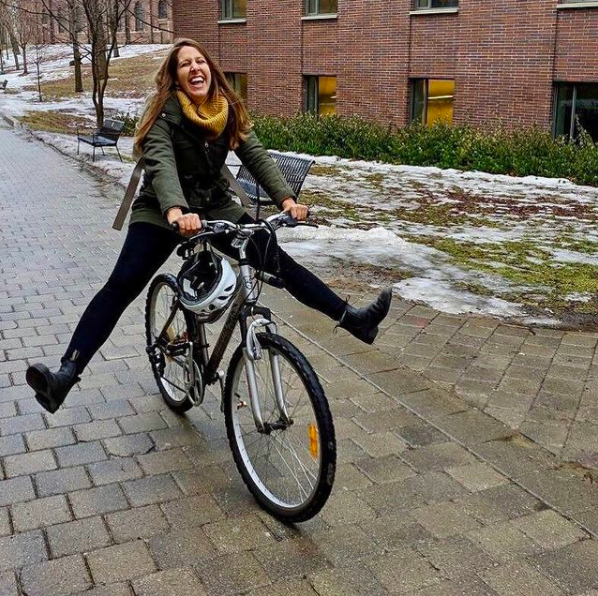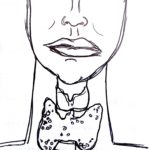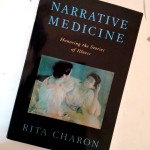My best friend is a teacher.
She told me that lately, all the children she works with have a label. “Meredith can’t attend your online class because it’s her first day of school and she can’t handle more than two things because of her anxiety”, one mother wrote in an email as she backed out of a private class my friend had created by special request.
“Everyone is nervous on their first day of school”, my friend remarked, as she recounted the story to me.
“I need everyone’s microphones muted”, a 10-year old student exclaimed during an online class, “I have sensory overwhelm and attention deficit disorder and can’t handle background noise”.
My friend spent three years teaching in a rural school at the edge of a volcano in Guatemala. She worked in a private girls’ school in Colombia. And she taught grade 1 at an outdoor jungle school on the Pacific Coast of Mexico. “I’m not used to these North American kids”, she reflected.
“I wonder what diagnoses we’d have gotten in university?” I mused. I remember our Revolutionary Wall–pictures of Noam Chomsky, Victor Jara and Ghandi plastered on the wall that welcomed us into the entrance of our dirty apartment.
That year we’d worn our sweaters backward because it “felt right” to rest your chin on your hood, stopped washing our hair to “let the oils moisturize our roots”, and spent a week on a 1000-piece puzzle instead of going to class.
It was our last year. We were done.
My other friend was diagnosed with cancer, which would soon turn terminal. I was suffering from some sort of unacknowledged eating disorder–there were no body positivity Instagram feeds at the time. I could have used some.
It was a painful year.
For those and many more reasons, I’m sure, I was depressed.
I remember at some point during that year heading to a walk-in clinic because I was gaining weight, depressed, exhausted and completely shutdown. The walk-in clinic doctor told me “it wasn’t my thyroid” and to “eat less” so that I would lose weight.
I never got a diagnosis.
I was never offered an antidepressant.
I remember feeling hopeless. Desperate for an answer, but most of all, a solution.
If she had offered me an antidepressant, I’m certain I would have taken it. In fact, I did end up taking one about a year later for a brief period when living in Colombia (before the side effects made me stop).
I escaped a label.
My journey forked in the road and I took the one less traveled that led me towards naturopathic medicine.
Before that, though, I saw my own natural doctor who listened to me and put together the puzzle of my symptoms (who knew that skipping class to put together our 1000-piece puzzle would figuratively prepare me for my future career).
Rather than diagnose me, he listened to me and told me the underlying causes of my symptoms–not just what they were called.
And then, because we knew the cause, we also had a solution. And I soon felt better.
Of course, when I started naturopathic school, another 4-year full-time program with full days of classes (sometimes 10+ hours a day) and millions of exams and assignments, the underlying hormonal conditions that drove the original depressive episode I experienced at the end of my undergrad resurfaced.
I ended up seeing a fourth year naturopathic intern and she put me on something called adaptogens.
Adaptogens are class of plants. They support our Hypothalamic-Pituitary-Adrenal (HPA) response, which orchestrates the stress response. They are studied in rats who, when given adaptogens can perform longer on swim tests, producing less cortisol (our stress hormone) in the process.
These rats can tread water longer, without as much stress hormone and therefore, with less damage from stress. Depression is one of those side effects from the damage of psychosocial stress.
Stress leads to shutdown, inflammation and further hormonal imbalance, causing a wide variety of symptoms that seem disconnected but arise from the same source.
After all, isn’t depression, anxiety and burnout just us trying to keep our heads above water?
Oh man, did I ever wish I’d known about adaptogens in undergrad!
If I could have, I would have shouted about them from the rooftops, thrown bottles of them out of a plane, put them in the water supply.
I can’t do those things, but I can put many of my patients on them. Many of my patients suffering from depression and anxiety, caused by problems with their HPA axises, end up taking adaptogens.
I prescribe them when those I work with experience things like low mood, fatigue, sleep issues, inflammation (pain and swelling), hormone imbalances, particularly PMS or peri-menopause, sugar and salt cravings, delayed muscle recovery, tension, panic attacks and anxiety, dizziness and weakness, low motivation, and other oh-so-common symptoms often labelled as Major Depressive Disorder or other psychiatric illnesses.
Did I ever wish I’d known about adaptogens when I was in undergrad.
Instead I remember taking a crappy B vitamin complex from the local drugstore that a roommate’s mom gave me because I was on the birth control pill and “you need B vitamins on the birth control pill”. (Which is true: you need more vitamin B6 on the pill, but probably not one from a local drugstore multivitamin).
It didn’t do much.
I really really wish someone, a fairy godmother, the walk-in clinic physician, a man on the street, an article somewhere on the internet (like this one), had told me, “You have these symptoms because you are suffering from HPA axis dysfunction, as a result of significant psychosocial stress. This makes you suffer from the symptoms you’re dealing with, depression not being a condition of its own, but just another symptom of this condition.
“Adaptogenic herbs can help you get through this, as well as some important foundational lifestyle pieces that someone like a naturopathic doctor can help you with.
“There is a reason for your suffering. A context behind it. There is a cause we can identify.
“And, most importantly, there is a solution.”
But, I didn’t have anyone to tell me that.
I really wish someone had told me about adaptogens, but I haven’t ever wished that someone had diagnosed me with depression.
Now, a diagnosis can be extremely validating for some.
It can be lifesaving.
Medical intervention can also be really helpful for some people. But, like adaptogens (I should add), medications aren’t a one-size-fits-all solution.
We don’t know what causes depression and anxiety (likely many factors, HPA axis dysfunction being one of them), but we do know it’s not caused by a chemical brain imbalance.
And medications are designed to correct the brain imbalance that doesn’t exist, which is why they don’t work in everyone.
However, they do do something in some. Because, even though they don’t really solve the problem they’re supposed to (at least not in that simplistic way), they might be doing something else, which solves a problem in a few people.
The problem is, antidepressants make some people feel worse. In others they do nothing. And, in some of the people they do help, they don’t do enough. We’re still suffering.
And labels, while they can be helpful and lifesaving in some cases, can do damage in others.
Take my friend’s student with anxiety. What if her story of “I get stressed out on the first day of school because I have anxiety” turned into:
“I get stressed out on the first day of school because a lot of people do. It’s normal to feel nervous and anxious on the first day of school and want everything to go right.”
Now, of course, I don’t want to insinuate that anxiety isn’t a real thing. Of course it is!
There are many of us who suffer from anxiety disorders–a higher amount of anxiety than is common. Rather than first-day jitters, they might experience severe panic and complete dysfunction that make life miserable.
However, in the first example, the power is out of this student’s hands. It lies in her identity. In her dysfunction.
In her label.
In the second, it becomes a shared human experience, which she might be able to externalize and work with. Because it’s a common experience, she might find support, kinship, and understanding in those who experience the same.
Of course, I don’t know her case specifically. Maybe her diagnosis has helped her. Maybe her anxiety is well labelled and managed. Maybe she doesn’t need help. Maybe she is doing just fine.
All I know is, I wonder what I would have been diagnosed with, with my sweater on backwards, my hair full of grease, my body heavy like lead, a million puzzle pieces spewed all over the kitchen table in my dirty apartment with the revolutionary wall.
I have no idea what my diagnosis would have been, but I’m personally glad I never got one.
Instead, I wish I had had the permission to go through what I was going through.
I wish I’d had context for my suffering.
I wish I’d been given hope that things would get better.
I wish someone had empowered me through understanding the underlying causes of my symptoms and, of course,
I wish someone had told me about adaptogens.







